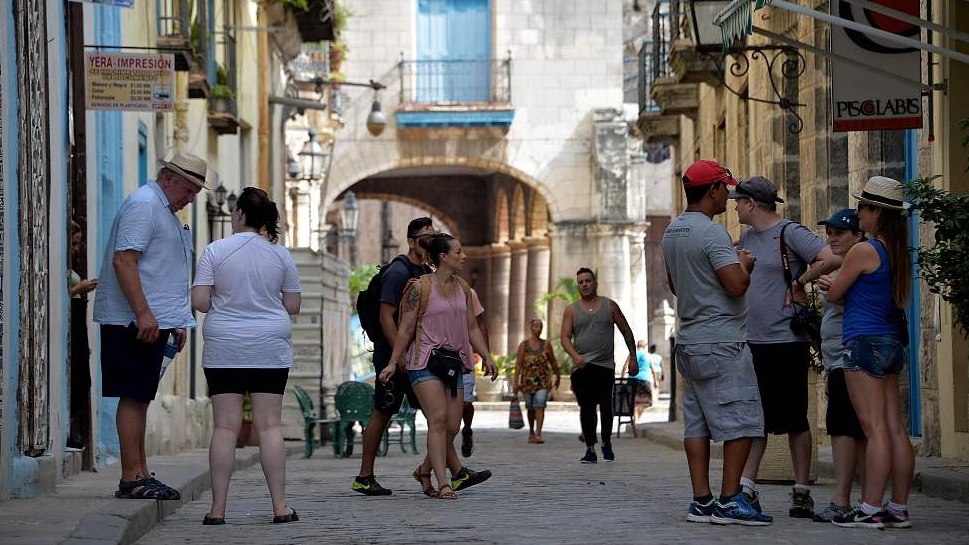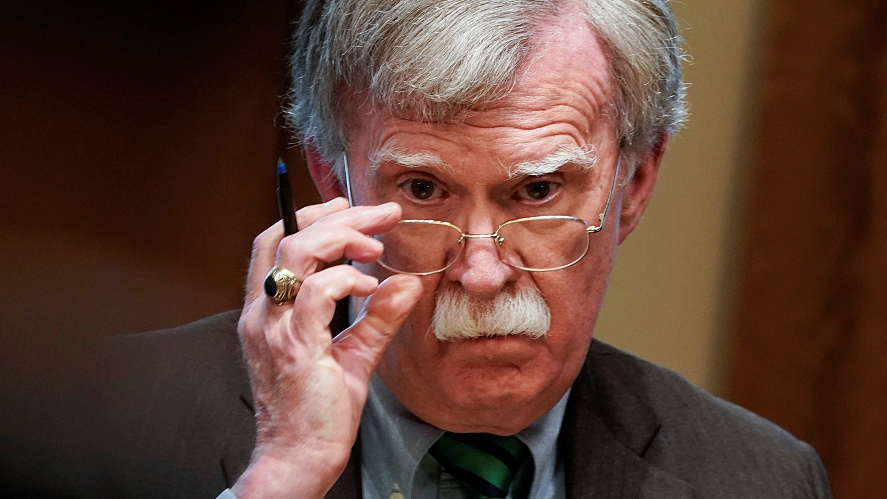
World
08:12, 05-Jun-2019
U.S. tightens sanctions on Cuba travel
Updated
09:23, 05-Jun-2019
CGTN

The United States announced on Tuesday that it has banned group educational travel to Cuba, a new move signaling its worsening ties with the Caribbean island.
The U.S. Treasury said in a statement that Washington is terminating
"group people-to-people educational travel" to Cuba, citing the country's
"destabilizing role in the Western Hemisphere" and its support for "U.S.
adversaries in places like Venezuela and Nicaragua."
The United States will
also no longer permit visits to Cuba by passenger and recreational vessels and private and corporate aircraft, according to the statement.
It is believed
that the latest U.S. move will drain off one of the major channels for the U.S.
citizens to visit Cuba.
"The United States holds the Cuban regime accountable for its repression of the Cuban people, its interference in Venezuela, and its direct role in the man-made crisis led by Nicolas Maduro," the State Department said in a statement.

National Security Advisor John Bolton adjusts his glasses in the Oval Office at the White House in Washington, U.S., April 2, 2019. /VCG Photo
National Security Advisor John Bolton adjusts his glasses in the Oval Office at the White House in Washington, U.S., April 2, 2019. /VCG Photo
"Empowered by Cuba, he has created a humanitarian disaster that destabilizes the region." White House National Security Advisor John Bolton said the aim was to end what the administration considers "veiled tourism" to Cuba.
"We will continue to take actions to restrict the Cuban regime's access to U.S. dollars," Bolton said on Twitter.
U.S.-Cuba ties have deteriorated under the Trump administration, which has rolled back the detente initiated by former U.S. president Barack Obama.
Washington has repeatedly alleged that Havana has
thousands of intelligence and security forces in Venezuela to shore up President
Nicholas Maduro's government, which Washington is openly seeking to oust from power.
Cuba denied the U.S. accusations and condemned the move, saying those allegations serve to justify new punitive economic measures against the island.
"They seek to stifle the economy and damage the standard of living of Cubans to wrest political concessions," said Foreign Affairs Minister Bruno Rodriguez in a tweeted statement. "They'll fail again."
The United
States has also activated Title III of the Helms-Burton Act recently, allowing
U.S. citizens to establish lawsuits against international companies operating in
Cuba on nationalized or expropriated properties after 1959. Havana has firmly rejected the activation of the act.
Source(s): Xinhua News Agency

SITEMAP
Copyright © 2018 CGTN. Beijing ICP prepared NO.16065310-3
Copyright © 2018 CGTN. Beijing ICP prepared NO.16065310-3